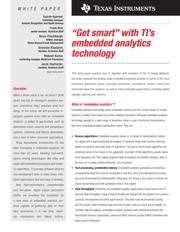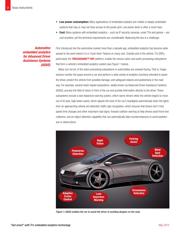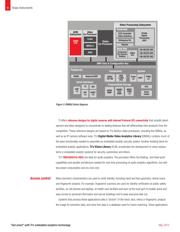Datasheet 搜索 > DSP数字信号处理器 > TI(德州仪器) > DM385AAAR01 数据手册 > DM385AAAR01 其他数据使用手册 1/12 页
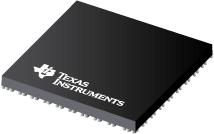
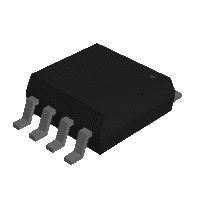 器件3D模型
器件3D模型¥ 299.556
DM385AAAR01 其他数据使用手册 - TI(德州仪器)
制造商:
TI(德州仪器)
分类:
DSP数字信号处理器
封装:
FCBGA-609
描述:
DM385和DM388 DaVincia ? ¢数字媒体处理器 DM385 and DM388 DaVinci⢠Digital Media Processor
Pictures:
3D模型
符号图
焊盘图
引脚图
产品图
页面导航:
原理图在P7
应用领域在P12
导航目录
DM385AAAR01数据手册
Page:
of 12 Go
若手册格式错乱,请下载阅览PDF原文件

Overview
When a driver starts a car, he doesn’t think
about starting an intelligent analytics sys-
tem; sometimes, that’s precisely what he’s
doing. In the future, we will encounter in-
telligent systems more often as embedded
analytics is added to applications such as
automotive vision, security and surveillance
systems, industrial and factory automation,
and a host of other consumer applications.
Texas Instruments Incorporated (TI) has
been innovating in embedded analytics for
more than 20 years, blending real-world,
sensor driving technologies like video and
audio with embedded processors and analyt-
ics algorithms. TI provides software libraries
and development tools to make these intel-
ligent applications fast and easy to develop.
Now, high-performance, programmable
and low-power digital signal processors
(DSPs) are providing the foundation for
a new wave of embedded analytics sys-
tems capable of gathering data on their
own, processing it in real time, reach-
ing conclusions and taking actions.
“Get smart” with TI’s
embedded analytics
technology
This white paper explains how TI, together with members of the TI Design Network,
are today empowering leading-edge embedded analytics systems in some of the most
prominent application areas, including automotive, surveillance, access control and
industrial inspection systems, as well as many emerging applications, including digital
signage, gaming and robotics.
What is “embedded analytics”?
Embedded analytics technology unites embedded systems and the human senses to enable
systems to analyze information and make intelligent decisions. Although embedded analytics
technology appeals to a wide range of industries, there is a set of technical characteristics
that most embedded analytics applications share. They are:
• Diversealgorithms: Embedded analytics draws on a myriad of mathematical, statisti-
cal, signal and image-processing techniques. It combines these with machine learning,
pattern recognition and other types of algorithms. The way in which these algorithms are
combined tends to be unique to the application, and each of the algorithms usually needs
to be adjusted a bit. This makes programmable processors and flexible software, often in
the form of re-usable software libraries, very important.
• Fastprocessing,predictablelatency: Embedded analytics generates a tremendous
computational load that must be processed in real time. Also, time allocated for process-
ing must be bounded and deterministic. Otherwise, the timing of the system is thrown off.
Advanced architectures with parallelism help in this regard.
• Datathroughput: Practically all embedded analytics applications involve some form of
extreme data throughput. Huge amounts of data are brought into the system from sensors,
cameras, microphones and other input devices. This data must be processed quickly,
and the results, often involving huge amounts of data, must be output just as rapidly. To
maintain data throughput, embedded analytics systems need advanced solutions like
hierarchical memory organization, advanced direct memory access (DMA) controllers and
wide memory interfaces.
WHITE PAPER
Gaurav Agarwal,
marketing manager,
Gesture Recognition and Depth Sensing
Frank Brill,
senior member, Technical Staff
Bruce Flinchbaugh,
fellow; manager,
Vision Research and Development
Branislav Kisačanin,
member, Technical Staff
Mukesh Kumar,
marketing manager, Multicore Processors
Jacek Stachurski,
member, Technical Staff
Texas Instruments
器件 Datasheet 文档搜索
AiEMA 数据库涵盖高达 72,405,303 个元件的数据手册,每天更新 5,000 多个 PDF 文件
